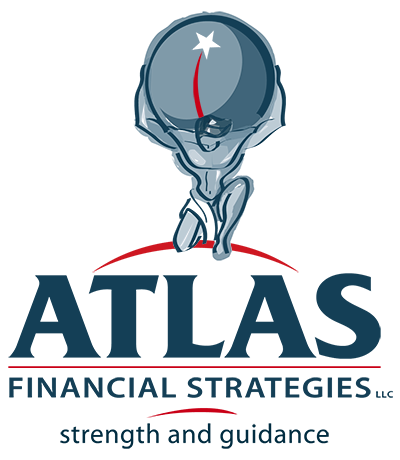- Our Process
- Video Learning Library
- Third Party Resources
- In the News
- Contact
- Investment Team
- Informational Guides
- Client Forms
- Our Firm
- I Just Sold My Business—Now What?
- How to Delay Withdrawals on Your Retirement Accounts
- Blog
- Investment Management
- Preparing Your Business for Sale: Navigating Due Diligence
- The Nautilus Group®
- Special Needs Planning
- Navigating Income Tax
- Life plan for your business®
- What You're Failing to Consider About Your Future Part I: Business Owners
- What You're Failing to Consider About Your Future Part II: Retirees
- What You're Failing to Consider About Your Future Part III: Young Professionals
- How Much Life Insurance Do I need?
- What You Should Know About Your Emergency Fund
- How Pre- and Post-Tax Contributions Affect Your Retirement
- Should You Do a Roth Conversion?
- Managing Debt: The Snowball vs. The Avalanche
- Your Extra Cash: Is It Better to Pay Off Debts or Invest More Money?
- Student Loans: What's the Best Way to Pay Them Off?
- Maximizing Your Money: Find the Most Efficient Use of Your Dollar
- Planning Post-Pandemic: Survival Tips for Business Owners
- Preparing Your Business for Sale: Are You Ready?
- Preparing Your Business for Sale: Pre-Sale Task List
- Preparing Your Business for Sale: Questions to Ask Potential Buyers
- Preparing Your Business for Sale: What to do When Things Get Serious
- When a Retirement and Legacy Arrangement (RALA) Makes Sense for You
- Know Your Numbers: The Importance of Creating Cash Management Systems Before Growth
- Tax Strategies for Business Owners
- Your Growing Business: Hiring the Right People
- Creating an Emergency Succession Plan to Protect Your Business
- Estate Planning: Equal Isn't Always Fair
- What’s the Greatest Gift You Can Leave Your Family? A Plan for Future Financial Success
What You're Failing to Consider About Your Future Part III: Young ProfessionalsPart III: Young ProfessionalsMost of the younger families we work with want assurance that they’re moving in the right direction. They want to know that they’re on the right track and if there’s anything they can do better with their financial plan. And at Atlas, we want you to be able to answer those questions yourself. We’re not here to make decisions for our clients, but we make it our mission to ensure you have all the information available to make choices that align with your goals. So, if you’re in the grind and you’re thinking about the future you want to build, here are some things you need to consider when it comes to your financial plan. The Snowball EffectThe great thing about planning while you have years of income-earning ahead of you is that you have time to build a solid foundation, adjust your investment strategies, and bounce back from mistakes. That’s why developing a plan when you’re young is so important—you can make life so much easier for yourself down the road. One of the most important things to understand is that the decisions you make now have a substantial impact on your future. That might seem obvious, but even small tweaks to your spending and saving habits can compound over time in big ways—and you should take advantage of that. As you pay off debts, think about impactful ways to use that newly “free” money, rather than adding it back to your spending budget. Pay off other debts, make sure you have the insurance you need, or add to your emergency fund—even if it’s just $20 a month. You might not see a difference this year or the next, but over the next twenty or thirty years, these small changes add up, and your future self will thank you for sacrificing a few trips to the coffee shop. Build Your Financial FoundationOne of the most common mistakes I see young people make is to focus all of their efforts on investing and retirement planning. It’s true that investing works best when you give your money time to grow, but I see too many people contribute to investment accounts at the expense of their financial foundation. When retirement is years away, you need to make sure you’re prepared for the next twenty or thirty years before your retirement. You need to protect yourself from liabilities—a potential loss of income, from emergency expenses, and other unexpected life events. After all, a great retirement plan won’t do you much good if you get sick or injured at age 40 and you don’t have a backup plan to cover your expenses when you can’t work. But when you establish a solid foundation, your investments have more power. When you have the proper insurance and emergency funds in place, you won’t have to use your retirement investments to cover an unexpected loss in the future. Growing wealth is important—but you need to plan in the right order. Don't Put Yourself at the Mercy of the IRSWhen you are ready to focus on your retirement plan, it’s important to understand all of your options for generating income. Determine what your expenses will be and consider how you can supplement that amount with income from sources like social security or income annuities. This strategy, combined with investment accounts, will create a more stable retirement plan than investments alone. Here’s something to consider about investment accounts—when you make a pre-tax contribution, you’re essentially creating a partner for your retirement—and that partner is the IRS. They receive a percentage of your retirement savings, and they get to determine what that percentage is and if it should change at any time. For example: If you save $1 million of pre-tax income into a tax-deferred account, part of that money belongs to the IRS. That means you can’t create a retirement budget based on the $1 million, but according to the amount you’ll be left with, which might be closer to $700,000. The IRS could also choose to increase tax rates at any time after you retire, leaving you with even less money. If that happens, and that account is your only source of retirement income, you have four choices:
Of course, none of those are great options. You’re left at the mercy of the IRS, which is a place no one wants to be. But if you diversify your retirement assets and establish more consistent sources of cashflow to meet your income needs, you can leverage the invested income for emergencies or “fun money.” (You can read more about stabilizing your retirement income with diversification in Part II of this blog series.) What Tax-Deferred Really MeansOftentimes, people in their income-earning years don’t understand the tax implications of their retirement accounts. I’ve had people ask me, “When I retire, don’t I get my investments back tax-free?” But tax-deferred does not mean tax-free. When you put money in a Traditional IRA, for instance, you invest the pre-tax amount (meaning you don’t have to pay taxes on that income now). But you will be taxed on it later, when you withdraw the money. So you need to consider—does it make more sense to pay the taxes now, or later, after the money grows and the taxes will likely be higher? There are pros and cons to each approach. When you invest pre-tax dollars, you’re able to invest a higher base amount, meaning you can accrue more in interest over time. But when you do this, you also run the risk of paying higher taxes in the future, assuming taxes increase over time (and they usually do). There’s no right or wrong answer but understanding the tax implications of your retirement accounts will help you make the best decision for you. Don't Plan BlindlyThere isn’t a one-size-fits-all financial plan that works best for everyone—that’s why we want to help you understand your options. Some people want to allocate their assets to more stable sources like fixed income annuities, even if it means forfeiting the opportunity to increase their returns over time. Others are more comfortable with investment risks or have less at stake if things don’t turn out the way they planned. The important thing is to know what you’re getting into. Do your research (talk to a professional; don’t fall down the Google rabbit hole) and make sure you understand the potential outcomes of each decision. You should be able to plan for the kind of future you want, and you can only do that if you understand the possible outcomes of your choices. If you need help understanding where your plan is taking you, we’d love to be your guide. Give us a call at (850) 542-4803 or click here to schedule a consultation. |
 Quick Links
Quick Links
